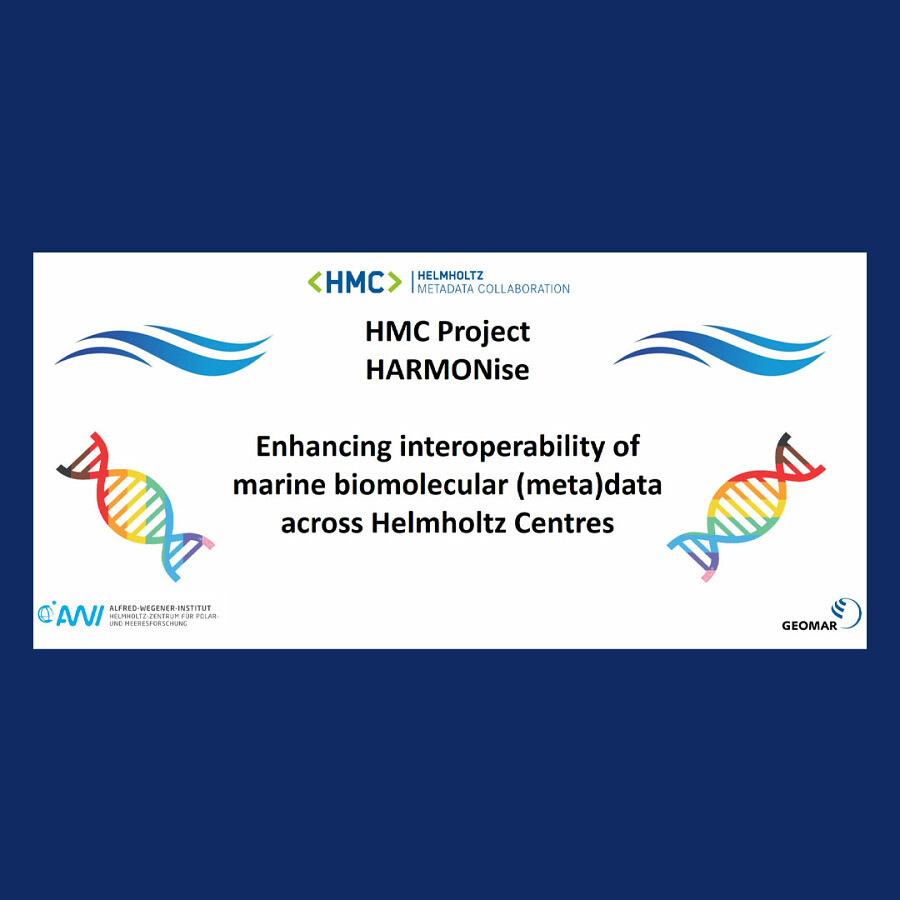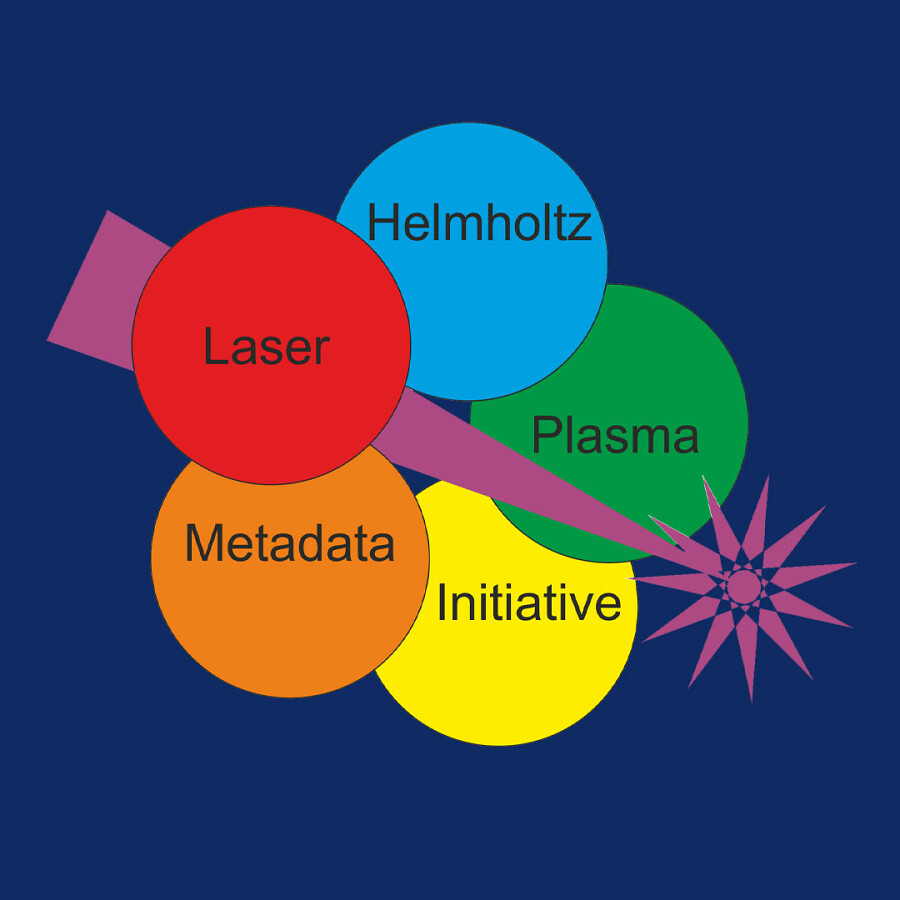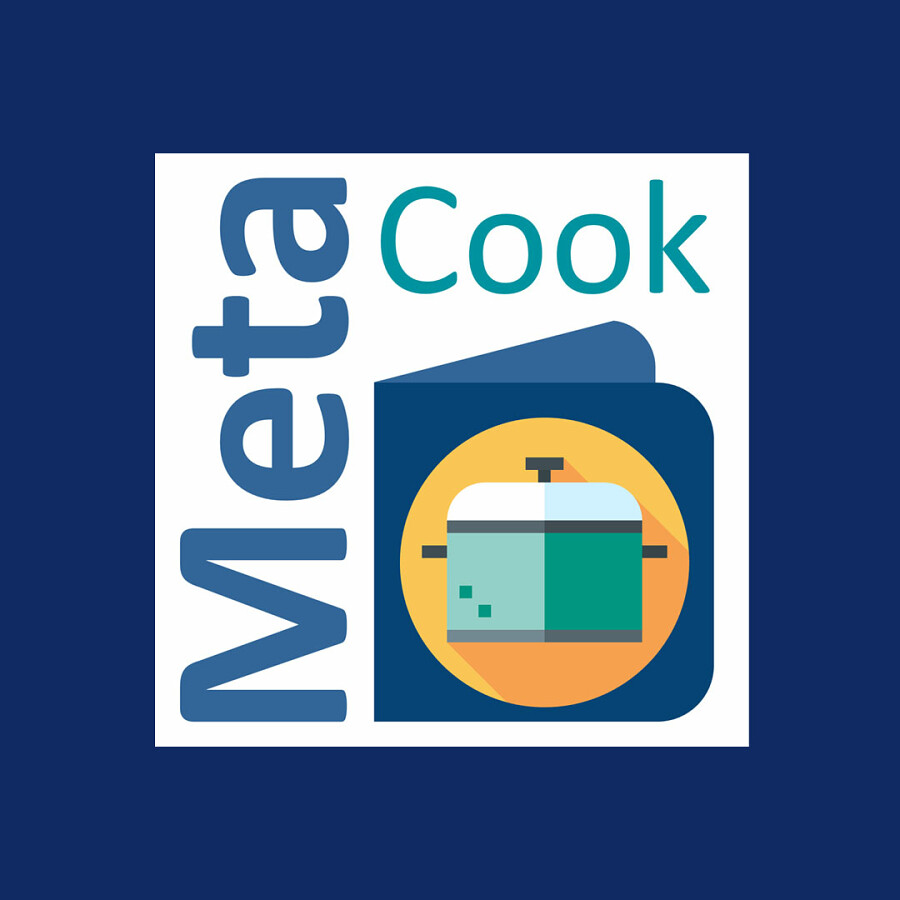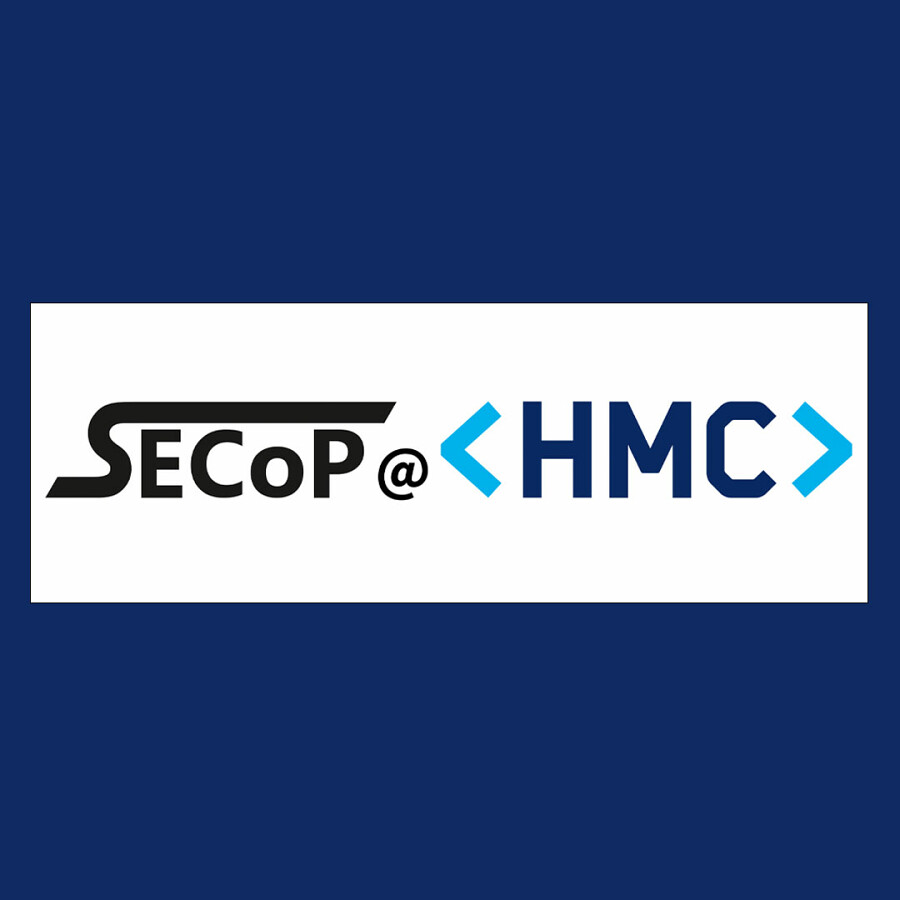
HMC Projektübersicht
In HMC sind Projektausschreibungen ein Instrument, um die kontinuierliche Entwicklung der HMC-Community zu fördern - die jährliche Ausschreibung ist ein Schlüssel zur Aktivierung und Einbindung der Helmholtz-Gemeinschaft.
Willkommen! Auf dieser Seite finden Sie einen Überblick über alle Projekte, die bisher im Rahmen des HMC-Projektaufrufs gefördert wurden. Bis heute wurden 36 innovative Projekte in fünf Förderrunden unterstützt. Die jüngste Runde im Jahr 2024 förderte 8 Projekte, während auch die vorherigen Jahre genauso beeindruckend waren: 6 Projekte im Jahr 2023, 7 im Jahr 2022, 6 im Jahr 2021 und 9 im ersten Aufruf im Jahr 2020.
Nehmen Sie sich einen Moment, um durch diese spannenden Initiativen zu stöbern, nach Jahr zu filtern oder den aktuellen Stand und Fortschritt der Projekte zu entdecken.

ADVANCE: Advanced metadata standards for biodiversity survey and monitoring data: Supporting of research and conservation
Das Projekt zielt darauf ab, die Generierung von Metadaten mit interoperablen Metadatenstandards zu unterstützen, indem semantische Artefakte verwendet werden, die den Zugang zu, die Integration und die Wiederverwendung von Daten aus der Biodiversitätsforschung der Helmholtz-Zentren für die Forschung und angewandte Biodiversitätserhaltung erleichtern. Der Fokus liegt auf Monitoringsdaten und der Integration von Daten aus den terrestrischen, Süßwasser- und marinen Bereichen.

AIMWORKS – Agentische multimodale Arbeitsabläufe für ontologie-basierte Repräsentation und Wissenssysteme
Dieses Projekt entwickelt ein FAIR-konformes, KI-gestütztes Knowledge-Graph- Framework, das heterogene Daten – von der Materialsynthese über Charakterisierung und Prüfung bis hin zu Fertigungsprozessen – für Wasserstofftechnologien integriert.

ALAMEDA: A scalable multi-domain Metadata management platform
ALAMEDA schlägt ein standardisiertes Metadaten-Management-System vor, das die Perspektive der Endnutzer in den Vordergrund stellt. Dadurch wird es ermöglicht, Metainformationen über Datenbanken hinweg zuzugreifen, zu suchen und zu vergleichen, während eine automatisierte Metadatenanreicherung unter Verwendung der verfügbaren DataHub-Tools erfolgt. Dies wird exemplarisch für Bodenfeuchtigkeit und stabile Isotopengeochemie umgesetzt.

AutoPeroSol: Towards automatic data management and a common ontology for perovskite solar cell device data
Dieses HMC-Projekt wird einen automatisierten Datenfluss schaffen, um den Austausch von Daten und Proben zwischen Partnern und Kollaborationen im Bereich der nächsten Generation von Multi-Junction-Solarzellen-Geräten zu erleichtern.

BeStMeta – Behavioral Standard Metadata
Verhaltensstandard-Metadaten: Entwicklung von Metadatenstandards und FAIR-Analyse-Pipelines für Video-Tracking-Tests (VTAs) in der Toxikologie und Medizinwissenschaften

CellTrack: Tracking the cell - metadata for single-cell genomics in biomedicine
CellTrack zielt darauf ab, die Einzelzellgenomik zu revolutionieren, indem robuste Metadatenstandards für die Erfassung komplexer, vielschichtiger Daten im Zusammenhang mit einzelnen Zellen entwickelt werden. Das von Oliver Stegle und Fabian Theis koordinierte Projekt nutzt bestehende Forschungs- und Infrastrukturen, um eine umfassende Toolchain für die Verwaltung, Bearbeitung und Visualisierung von Metadaten zu schaffen und so effektivere klinische Studien und Gesundheitsforschung zu ermöglichen.

eFAIRs: Enhancing FAIRness in seismological data management
Das Projekt hat zum Ziel, ein FAIR-Datenmanagement für Ozeanbodenseismometer (OBS)-Datensätze zu erreichen, indem diese in die routinemäßigen Datenmanagement-Workflows für die langfristige Archivierung in seismologischen Datenzentren integriert werden. Darüber hinaus planen wir, konsistent mit den Stationen an Land, Instrumenten-PIDs zu integrieren und den Prozess der Metadatenerstellung zu automatisieren.

ELN-DIY-Meta: ELN-Driven InteroperabilitY for Metadata
In diesem Projekt wird eine Methode für den Metadaten- und Datentransfer zwischen den Open-Source-ELNs Chemotion und Herbie entwickelt. Das Projekt wird darauf abzielen, den spezifischen Prozess über die Beschreibung einer allgemeinen Richtlinie und die Implementierung verfügbarer Standards zu verallgemeinern. Das Konzept wird am Anwendungsfall der Polymermembranforschung demonstriert.

ELN-RO – Ermöglichung der Interoperabilität zwischen ELNs und RO-Crates
Dieses Projekt verbessert die Interoperabilität zwischen ELNs und RO-Crates durch die Entwicklung standardisierter Metadaten-Mappings und Werkzeuge für einen nahtlosen Datenaustausch. Mit einem Fokus auf experimentelle Workflows in den Chemie- und Lebenswissenschaften bietet ELN-RO eine skalierbare Lösung zur Optimierung von Datenmanagement, -austausch und -reproduzierbarkeit und trägt zu übergreifenden Forschungsinitiativen bei.

EReMiD – Förderung der Wiederverwendung von Mikrobiomdaten
Förderung der Wiederverwendung von Mikrobiomdaten (EReMiD): KI-unterstützte Kategorisierung von Datentypen und Ontologie-Angleichung über verschiedene Disziplinen hinweg

FAIR AIMS – Automatisiertes IGSN-Management-System
FAIR AIMS – Automatisiertes IGSN-Management-System

FAIR WISH: FAIR Workflows to establish IGSN for Samples in the Helmholtz Association
Etablierung standardisierter IGSN-Workflows für Proben in der Erdwissenschafts-Community innerhalb der Helmholtz-Gemeinschaft. IGSN ist ein weltweit eindeutiger, zitierfähiger und persistenter Identifikator (PID) für physische Proben mit Entdeckungsfunktionalität im Internet.

FDO-5DI: FAIR Digital Objects for 5D imagery of our and other planet(s)
Ziel dieses Projekts ist es, interoperable Metadatenempfehlungen in Form von FAIR digitalen Objekten (FDOs) für 5D (d. h. x, y, z, Zeit, räumliche Referenz) Bilddaten der Erde und anderer Planeten zu entwickeln. Der Hauptnutzen, der erwartet wird, ist eine höhere Effektivität und Effizienz bei der Verwaltung, Veröffentlichung und Interpretation von Bildgebungsdaten für beide Bereiche – sowohl bei der Erforschung des Meeresbodens als auch bei der Untersuchung planetarer Oberflächen und dazwischen.

HARMONise: Enhancing interoperability of marine biomolecular (meta)data across Helmholtz Centres
Dieses kollaborative Projekt wird nachhaltige Lösungen und digitale Kulturen entwickeln, um eine hochwertige, standardskonforme Kuratierung und Verwaltung von marinen biomolekularen Metadaten zu ermöglichen und die biomolekulare Wissenschaft besser in breitere digitale Ökosysteme und Forschungsdomänen zu integrieren.

HELIPORT: HELmholtz ScIentific Project WORkflow PlaTform
Das Projekt zielt darauf ab, eine Workflow-Plattform zu entwickeln, die den gesamten Lebenszyklus eines wissenschaftlichen Projekts abbildet und alle entsprechenden Programme und Systeme verknüpft, um eine FAIRere und nachvollziehbarere Projektbeschreibung zu schaffen.

HELPMI: Helmholtz Laser-Plasma Metadata Initiative
HELPMI wird einen Metadatenstandard für experimentelle Daten der globalen Laser-Plasma-Community entwickeln. Bis heute verwendet diese Community überwiegend openPMD, einen offenen Meta-Standard, der ursprünglich für den Bereich der Simulationen entwickelt wurde.

HERMES: Helmholtz Rich Metadata Software Publication
Ziel dieses Projekts ist es, Forscher dabei zu unterstützen, ihre Forschungssoftware so zu veröffentlichen, dass sie auffindbar, nachvollziehbar, zitierfähig und wiederverwendbar ist. Der Schlüssel dazu ist die Erstellung, Pflege und Ablage von reichhaltigen Metadaten bei Software-Publikationen.

LabFriend – Laborassistent für benutzerfreundliches Metadatenmanagement
LabFriend - Laborassistent für benutzerfreundliches Metadatenmanagement

M3eta: An extensible metadata scheme for advanced momentum microscopy in the age of big data
M³eta zielt darauf ab, ein erweiterbares und nachhaltiges Metadatenschema für die Momentum-Mikroskopie zu etablieren, das zusammen mit den gemessenen Daten-Voxels gespeichert wird. Dies wird die Grundlage für einen standardisierten Arbeitsablauf bilden, der die gespeicherten Metadaten interpretiert und Ansichten der multidimensionalen elektronischen Struktur eines Materials rekonstruiert.

MEMAS: Metadata Enriched Manufacturing data for Automated Simulation
Die Herstellung von Verbundteilen umfasst mehrere Prozessschritte, bei denen große Datensätze von Maschinen oder Umweltsensoren erzeugt werden. Mit Hilfe des kürzlich entwickelten Datenmanagementsystems Shepard zielt das Projekt MEMAS darauf ab, diese Fertigungsdaten auf beständige Weise zu speichern und miteinander zu verknüpfen

MeSyTo - Metadaten-Rahmenwerke zur Erleichterung der Interoperabilität in der Systemtoxikologie und -pharmakologie
Metadaten-Rahmenwerke zur Erleichterung der Interoperabilität in der Systemtoxikologie und -pharmakologie

MetaCook: The Metadata Cookbook
Zusammenfassend schafft MetaCook einen Rahmen für die Erstellung von (1) FAIR Vokabularen und (2) FAIR Ontologien. Die Software VocPopuli bindet Nutzer in eine Git-basierte, kollaborative Erstellung von kontrollierten Vokabularen ein, die dann mithilfe von OntoFAIRCook über semi-supervised maschinelles Lernen in Ontologien umgewandelt werden.

MetaMap3: Metadata generation, enrichment and linkage across the three domains health, environment and earth observation
MetaMap³ befasst sich mit der Zusammenstellung, Generierung, Anreicherung und Zuordnung von maschinenlesbaren und interoperablen Metadatenschemata für beispielhafte Daten aus den drei Bereichen Gesundheit, Erde & Umwelt sowie Luft- und Raumfahrt & Verkehr

Metamorphoses: Metadata for the merging of diverse atmospheric data on common subspaces
Dieses Projekt wird verbesserte Standards für speichereffiziente, zerlegte Arrays und Werkzeuge für die automatisierte Erstellung standardisierter Lagrange-Trajektoriendateien entwickeln, um eine optimierte und effiziente synergetische Zusammenführung großer Fernerkundungsdatensätze zu ermöglichen.

MetaMoSim: Generic metadata management for reproducible high-performance-computing simulation workflows
Das Projekt zielt darauf ab, ein generisches, bereichsübergreifendes Metadaten-Management-Framework zu entwickeln, um die Reproduzierbarkeit der HPC-basierten Simulationswissenschaft zu fördern und Workflows sowie Werkzeuge für eine effiziente Organisation, Erkundung und Visualisierung von Simulationsdaten bereitzustellen.

MetaSeis - Metadatenkonzept für OBS- und 3D-Seismikdaten für die deutsche Community
Im Rahmen von MetaSeis werden wir eine vereinheitlichende Dateninfrastruktur entwickeln und uns auf die künftige Archivierung von 3D-reflexionsseismischen Daten und aktiven OBS-Daten von aktuellen und künftigen Forschungsfahrten vorbereiten. Unser Ziel ist es, bestehende Standards und interoperable Vokabulare zu übernehmen und zu erweitern, einschließlich Qualitäts- und Validierungsprüfungen für Metadaten, und eine verteilte Infrastruktur für die Datenkuration durch harmonisierte Daten-Workflows mit Verbindungen zu internationalen Datenlagern zu schaffen.

MetaSupra - Interoperabilität für das Sammeln von Oberflächendaten von der Oberfläche zur Struktur
Interoperabilität für das Sammeln von Oberflächendaten von der Oberfläche zur Struktur

MetaSurf – Interoperabilität für das Tauchen von Oberflächendaten von der Oberfläche zur Struktur
Entwicklung von Metadaten-zentrierten Tools und Arbeitsabläufen zur Unterstützung eines effizienten Datenaustauschs und -managementsa. Das MetaSurf-Projekt zielt darauf ab, die FAIR-Prinzipien auf Daten der Oberflächenforschung anzuwenden und deren Verwaltung und Zugänglichkeit zu verbessern. Durch die Integration fortschrittlicher Berechnungswerkzeuge in Kadi4Mat soll die Verarbeitung automatisiert und ein standardisierter öffentlicher Datenspeicher geschaffen werden. Diese Initiative konzentriert sich auf die Entwicklung von metadatenzentrierten Werkzeugen und Arbeitsabläufen zur Unterstützung eines effizienten Datenaustauschs und -managements.

MicroMacS – Mikrobiom-Maschine für die Synthese
Mikrobiom-Maschine für die Synthese: Domänenspezifische Anwendung von FAIR-Datenbewertungen für die automatisierte Metadaten-Erfassung

MISO: Metadata for Ionospheric and Space Weather Observations
Das Projekt zielt darauf ab, Metadatenstandards für die Interoperabilität von weltraumgestützten Daten aus verschiedenen Satelliten und Gemeinschaften zu entwickeln

MOIN4Herbie
MOIN4Herbie adressiert den Mangel an digitalisierten Wartungsmetadaten in den Helmholtz-Forschungsbereichen Information und Erde und Umwelt. Zu diesem Zweck wird MOIN4Herbie das elektronische Labornotizbuch Herbie mit ontologiebasierten Formularen erweitern, um digitale Aufzeichnungen von Metadaten zur Sensorwartung für zwei Pilotfälle zu liefern: Das neu aufgestellte Unterwasserobservatorium Boknis Eck und die Forschungsplattform Tesperhude.

PATOF - From the Past to the Future: Legacy Data in Small and Medium-Scale - a Blueprint for PUNCH and Other Disciplines
Der Schwerpunkt von PATOF liegt auf die Daten des A4-Experiments (und in Zukunft auch die von ALPS II, PRIMA, P2 und LUXE) öffentlich zugänglich und nutzbar zu machen. Darüber hinaus wird ein "Kochbuch" zur Verfügung gestellt, das die Methodik für die Erstellung individueller experimentenspezifischer Metadatenschemata nach FAIR und eine "FAIR Metadatenfabrik" beschrieben, d. h. ein Verfahren zur Erstellung eines natürlich gewachsenen Metadaten Schema.

SECoP@HMC: A standardized interface for sample environment metadata and control - SECoP integration into experiment control systems
Das Sample Environment Communication Protocol (SECoP) bietet eine generalisierte Möglichkeit zur Steuerung von Messgeräten – mit besonderem Fokus auf Ausstattungen für das Probenumfeld (SE). Darüber hinaus ermöglicht SECoP den Transport von SE-Metadaten auf eine klar definierte Weise.

Semantic x-Lab – Semantische Suche nach ontologie-basierten Beschreibungen von Laborabläufen, Ressourcen und Daten im Helmholtz
Semantische Suche nach ontologie-basierten Beschreibungen von Laborabläufen, Ressourcen und Daten im Helmholtz

Software CaRD - A curation and reporting dashboard for compliant FAIR software publications
Ein Kurations- und Berichts-Dashboard für FAIR-konforme Software-Veröffentlichungen

STAMPLATE: SensorThings API Metadata ProfiLes for eArTh and Environment
Das von der HMC geförderte Projekt STAMPLATE hat zum Ziel, die SensorThings API (STA) des Open Geospatial Consortium (OGC) als konsistente, moderne und leichtgewichtige Datenschnittstelle für Zeitreihendaten zu implementieren und zu etablieren. Anhand von repräsentativen Anwendungsfällen aus allen sieben Forschungszentren des Helmholtz-Forschungsbereichs Erde & Umwelt stellen wir die Übertragbarkeit und Anwendbarkeit unserer Lösungen für ein breites Spektrum von Messsystemen sicher. Unser Projekt leistet damit einen entscheidenden Beitrag zu einem digitalen Ökosystem und einer vernetzten, konsistenten und FAIRen Forschungsdateninfrastruktur, die auf Zeitreihendaten aus den Umweltwissenschaft